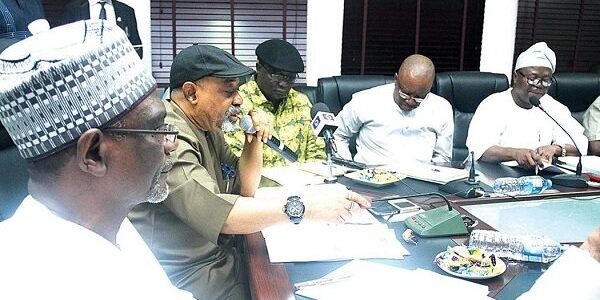
Sir: The Academic Staff Union of Universities (ASUU) has been a thorn in the flesh of successive Nigerian governments due to its radical stance and collective struggle against the poor funding of Nigeria’s university education system. The union is also a cat with nine lives for always surmounting turbulent periods.
The other prominent academic unions such as the Academic Staff Union of Polytechnics (ASUP), the Nigeria Union of Teachers (NUT) and the Academic Staff Union of Secondary Schools (ASUSS) have been emasculated through sponsored internal wrangling and sell-out leaderships. These unions have lost their bearing towards advocating adequate financing of public education. ASUU remains the last standing pillar for Nigeria’s public education.

However, a plethora of ASUU’s demands are yet to be fully implemented by the government. The union has shown total commitment towards sustainable educational development through endless roundtable negotiations with the government officials. For instance, the 2009 FG-ASUU agreement has been renegotiated for the umpteenth time. Surprisingly, ASUU is often described as an agent of instability when the government reneges on its promises and ASUU chooses industrial action as an option to press its demands.
Successive Nigerian governments have not once rebutted ASUU on claims it brokered with the former. This shows ASUU has always stood by the deal brokered with the government. The irresponsibility of Nigerian government is glaring except one has lost touch with reality. Moreover, ASUU’s resistance against Integrated Payroll and Personnel Information System (IPPIS), the newly proposed payment modality for university lecturers, is justifiable. It is a clear shortcut to erode university autonomy and academic freedom.

Many demands by ASUU are justifiable, but its neutral stance on coordinated attacks on students’ unionism and victimization of students activists across Nigerian universities renders its progressive stance questionable. Quite a number of lecturers even conspire with universities’ vice chancellors and government officials to execute the vicious agenda. It is essential that ASUU turns a new leaf.
The refusal of ASUU to directly associate and solidarize with students unions across campuses would only portray its revitalization blueprint as a smokescreen to continually promote its corporate interest. Since the National Association of Nigerian Students (NANS) platform has been hijacked by political blocs, it behooves ASUU branches to foster vibrant students’ unions across campuses through conscientization and moral support.
Sit-at-home strike is becoming ineffective to press ASUU’s demands. The approach could only work for a government that places education on a premium scale. If ASUU subsequently embarks on industrial action, it may last for years. The government took measures to end the protracted nine-months strike due to the escalation of #EndSARS protests. Once the current volatile state simmers down, the government may renege on its promises.
The government’s hide-and-seek tactic has the tendency to persist from one administration to another. This trend will eventually lead to the total collapse of public education. Therefore, a standby vibrant students’ unionism would regularly put the government on its toes. No irresponsible democratic government could clampdown or show lackadaisical attitude towards national non-political civil unrest targeted at funding public education.
Credit: The Nation
